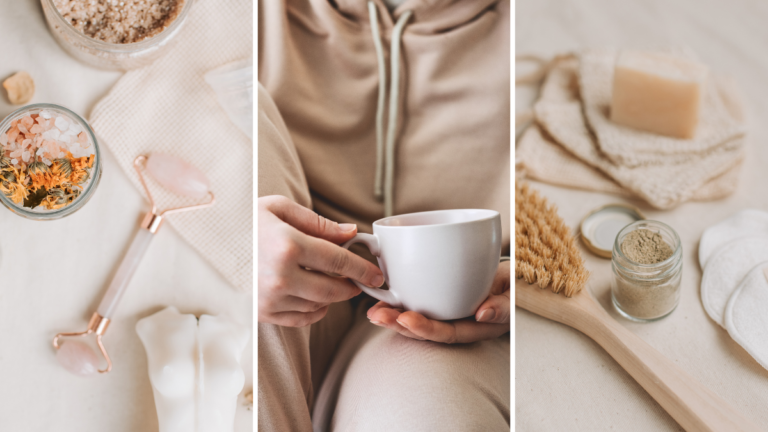The Artists Business Lounge
Art Business Coaching for Visual Artists
Protecting Our Emotions: Self-Care Matters

In our fast-paced, always-connected world, it’s easy to get caught up in the whirlwind of daily demands, leaving little time for ourselves. For visual artists, the constant drive to create, meet deadlines, and maintain a presence in the art community can be overwhelming. Yet, protecting our emotions and prioritising self-care are essential for our overall well-being.
When we nurture our emotional health, we become more resilient, balanced, and able to face life’s challenges with grace and strength. Here’s how visual artists can protect their emotions and prioritize self-care.
Setting Boundaries: The First Step to Emotional Protection
Setting boundaries is crucial for maintaining emotional health. Boundaries are the limits we set to protect our well-being from the negative influences of others. They help us define what is acceptable and unacceptable in our interactions and ensure that we have the space we need to recharge and nurture ourselves.
How to Set Effective Boundaries
Identify Your Limits
Reflect on your physical, emotional, and mental limits.
What activities, behaviours, or interactions make you feel uncomfortable or stressed?
Understanding these triggers helps you recognize when a boundary needs to be set. For instance, if constant interruptions during your creative process lead to frustration, it might be necessary to set a boundary regarding your working hours and inform others about it.
Communicate Clearly
Use assertive and respectful language to communicate your boundaries. Be clear and concise, explaining your needs and expectations without feeling guilty. For example, “I need some quiet time after work to relax and recharge. Can we catch up later in the evening?”
Clear communication helps others understand and respect your limits.
Be Consistent
Consistency is key to maintaining boundaries. If you set a boundary, stick to it. This reinforces the importance of your limits and helps others understand and respect them. For example, if you decide that you won’t check emails after 8 PM, make sure to adhere to this rule consistently.
Learn to Say No
Saying no can be difficult, but it’s a powerful tool for protecting your emotional well-being. Practice saying no to commitments that drain your energy or compromise your mental health. Remember, you don’t have to explain your reasons extensively. A simple, “I’m sorry, I can’t commit to that right now” is sufficient.
Seek Support
Surround yourself with people who respect your boundaries and support your self-care efforts. Share your boundary-setting goals with trusted friends or family members who can encourage you and hold you accountable. Having a support system makes it easier to maintain your boundaries.
Practicing Self-Compassion: Being Kind to Yourself
Self-compassion involves treating yourself with the same kindness and understanding that you would offer a friend. It means acknowledging your imperfections and mistakes without harsh self-criticism. Here are some ways to practice self-compassion:
Mindful Self-Awareness
Take time to observe your thoughts and feelings without judgment. Recognize when you are being self-critical and gently redirect your thoughts towards kindness. Mindfulness practices, such as meditation or deep-breathing exercises, can help you develop this awareness. Mindful.org offers a great resource on how to start practising mindfulness.
Positive Affirmations
Use positive affirmations to counteract negative self-talk. Remind yourself of your strengths and accomplishments regularly. For instance, tell yourself, “I am a talented artist, and my work is valuable.” Affirmations can boost your confidence and reinforce a positive self-image.
Self-Care Rituals
Engage in activities that bring you joy and relaxation. This could be reading a book, taking a warm bath, practising yoga, or spending time in nature. Establishing a daily self-care routine can help you stay balanced and grounded. Websites like Psychology Today provide valuable insights into building effective self-care routines.

Surround Yourself with Positivity
The environment and people we surround ourselves with significantly impact our emotional health. Create a positive and supportive environment by:
Choosing Supportive Relationships
Build relationships with people who uplift and encourage you. Distance yourself from toxic individuals who drain your energy or bring negativity into your life. Positive relationships foster a sense of belonging and security, which is crucial for emotional well-being. Verywell Mind highlights the characteristics of healthy relationships and how they can support your emotional health.
Creating a Positive Space
Arrange your living or working space to reflect positivity and peace. Use elements like plants, soothing colors, and inspirational quotes to create a calming atmosphere. A well-organized and aesthetically pleasing workspace can enhance your creativity and reduce stress.
Engaging in Uplifting Activities
Participate in activities that boost your mood and inspire you. This could include hobbies, creative pursuits, or volunteering for causes you care about. Engaging in activities that bring you joy can significantly improve your emotional health. HelpGuide offers practical tips for building better mental health through uplifting activities.

The Importance of Prioritising Emotional Health
Your emotional health is as important as your physical health. By setting boundaries, practising self-compassion, and surrounding yourself with positivity, you create a strong foundation for a fulfilling and balanced life. Remember, you deserve to prioritize your emotional well-being. Make self-care a non-negotiable part of your routine, and watch as your resilience and happiness grow.
Real-Life Examples
Many successful visual artists prioritize their emotional health to maintain their creativity and productivity. For instance, renowned artist Yayoi Kusama openly discusses her mental health struggles and how creating art has been a form of self-care for her. Her story is a powerful reminder of the importance of emotional health in sustaining a long and fruitful artistic career.
Conclusion
Let’s commit today to protecting our precious emotions and nurturing our well-being. After all, a healthy emotional state is the cornerstone of a happy and successful life.
In our fast-paced world, taking time for self-care is not a luxury but a necessity. By setting effective boundaries, practising self-compassion, and surrounding yourself with positivity, you can protect your emotional well-being and enhance your creative potential.
Feel free to share this blog post with friends and fellow artists who might benefit from these self-care tips. Together, we can create a more emotionally healthy and supportive art community.
Additional Resources
Money Mindset for Artists




